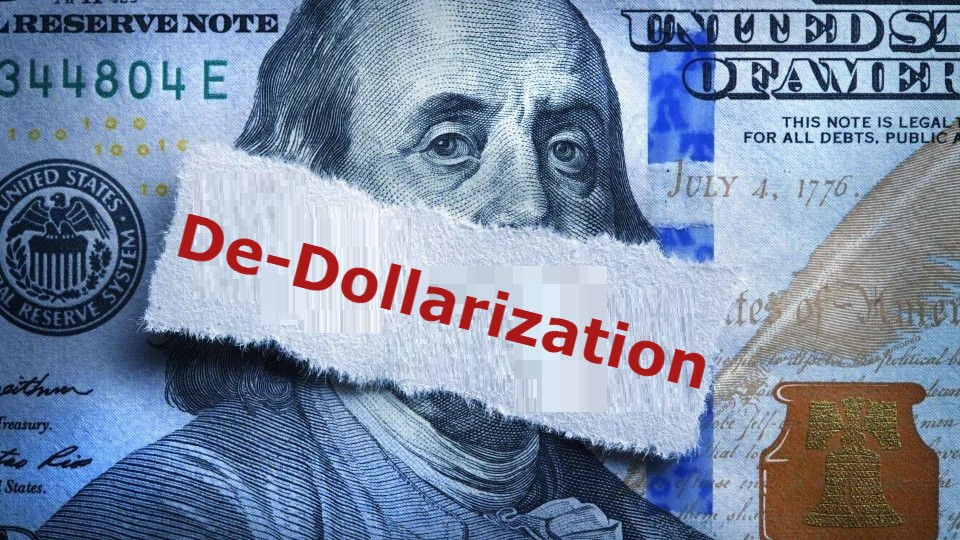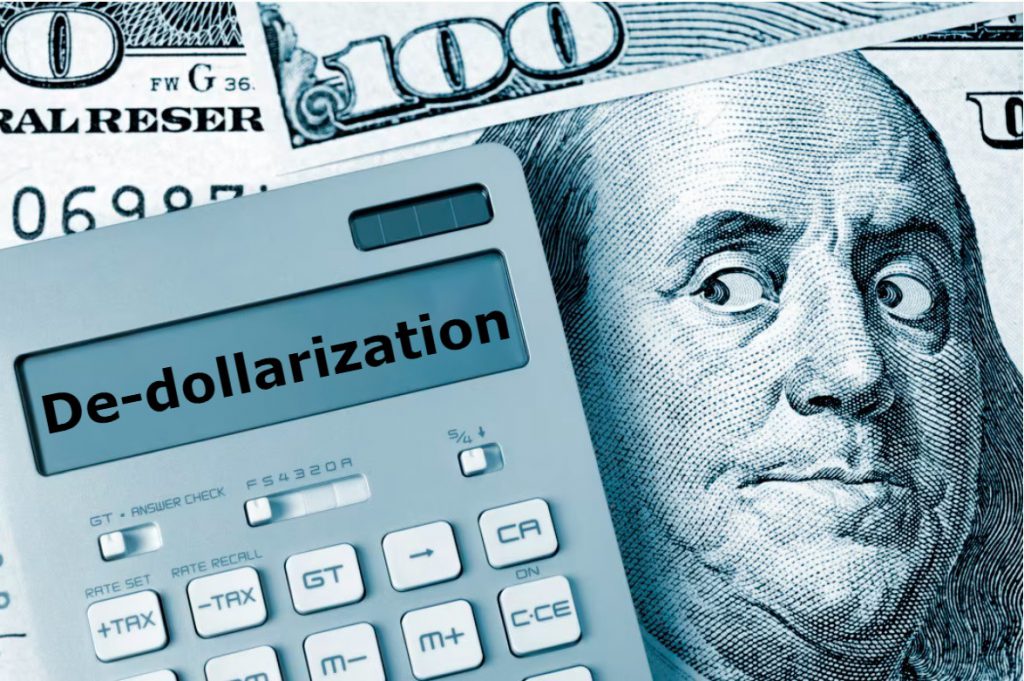De-Dollarization Will Continue, Says Rabobank’s Jane Foley

De-dollarization is the most spoken word in the global markets as emerging economies want to cut ties with the US dollar. The world is looking to strengthen local currencies and dim the lights on the USD as the White House is accused of weaponizing the currency. From sanctions to tariffs, developing countries are bearing the brunt of the US policies that only harm their native economies.
Also Read: De-Dollarization: J.P.Morgan Predicts the US Dollar’s Future in 2025
The US dollar’s global reserve currency status is now under question as developing countries aim to topple the USD’s dominance. The paradigm shift against America grew after the White House imposed sanctions on Russia in 2022. The sanctions were also extended to Iran and Belarus, among other countries, and in return strengthened the de-dollarization agenda.
Also Read: Alphabet (GOOGL) Stock Slides Following UK Lawsuit
Rabobank: De-Dollarization Trend Is Here To Stay & Will Continue

Rabobank’s FX Strategy head Jane Foley explained in a recent interview with Bloomberg that de-dollarization will continue. Foley stressed that the US cannot stop the initiative as developing nations have made up their minds to de-dollarize. They are now diversifying their reserves with gold and other currencies while simultaneously cutting back on the US dollar.
Also Read: De-Dollarization: 9 Countries Ditch the US Dollar
“De-dollarization is an issue, it is a concern, and it will continue,” said Foley, cautioning that the USD’s reserve currency status is under threat. However, she explained that the US dollar is surviving because no real alternative currently exists in the market. “But we can’t replace the US dollar quickly. There isn’t a clear alternative,” she said.
Moreover, when a new currency or a basket of currencies becomes an official form of payment, the USD could decline. It is now only a matter of time before de-dollarization gets a stronger grip on the global financial markets. The next decade or two could rewrite the rules of the financial sector where the US dollar could remain in the back seat.
De-Dollarization Will Continue, Says Rabobank’s Jane Foley

De-dollarization is the most spoken word in the global markets as emerging economies want to cut ties with the US dollar. The world is looking to strengthen local currencies and dim the lights on the USD as the White House is accused of weaponizing the currency. From sanctions to tariffs, developing countries are bearing the brunt of the US policies that only harm their native economies.
Also Read: De-Dollarization: J.P.Morgan Predicts the US Dollar’s Future in 2025
The US dollar’s global reserve currency status is now under question as developing countries aim to topple the USD’s dominance. The paradigm shift against America grew after the White House imposed sanctions on Russia in 2022. The sanctions were also extended to Iran and Belarus, among other countries, and in return strengthened the de-dollarization agenda.
Also Read: Alphabet (GOOGL) Stock Slides Following UK Lawsuit
Rabobank: De-Dollarization Trend Is Here To Stay & Will Continue

Rabobank’s FX Strategy head Jane Foley explained in a recent interview with Bloomberg that de-dollarization will continue. Foley stressed that the US cannot stop the initiative as developing nations have made up their minds to de-dollarize. They are now diversifying their reserves with gold and other currencies while simultaneously cutting back on the US dollar.
Also Read: De-Dollarization: 9 Countries Ditch the US Dollar
“De-dollarization is an issue, it is a concern, and it will continue,” said Foley, cautioning that the USD’s reserve currency status is under threat. However, she explained that the US dollar is surviving because no real alternative currently exists in the market. “But we can’t replace the US dollar quickly. There isn’t a clear alternative,” she said.
Moreover, when a new currency or a basket of currencies becomes an official form of payment, the USD could decline. It is now only a matter of time before de-dollarization gets a stronger grip on the global financial markets. The next decade or two could rewrite the rules of the financial sector where the US dollar could remain in the back seat.

